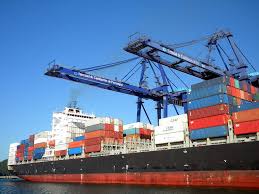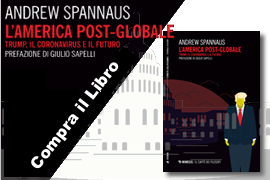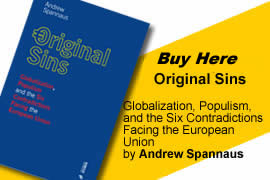– by Andrew Spannaus –
The announcement that the United States is considering imposing punitive tariffs on a series of European goods, including prestigious italian products such as Vespa scooters and San Pellegrino water, has triggered the expected hysteria regard Trump’s protectionism. It would be better to take a step back to have a clearer view of the situation, and undertand how U.S. trade policy could evolve.
The measures floated last week aren’t new; actually, they had been threatened by U.S. Trade Representative Jason Furman at the end of the Obama Administration in December 2016, in response to the failure of negotiations on the new trade agreement between the U.S. and Europe, the TTIP. It was announced that public hearings would be held to discuss the imposition of 100% duties on a series of European products.
It all started with the dispute over meat produced with growth hormones, blocked by Europe, which ended up as a dispute before the World Trade Organization starting way back in 1996. The next year, the WTO authorized the U.S. to impose punitive tariffs to compensate for the losses suffered due to the prohibitions applied by Europe. In 2009, an agreement was reached for the importation of a limited quantity of meat without hormones (50,000 tons), but the Americans say that the quota is filled principally by Argentina and Uruguay, essentially cutting out the United States.
It is understandable that Europeans would complain about measures that 1. could damage their high-quality products, and 2. are a response to a policy – that of prohibiting the use of certain types of hormones – that is supposed to protect public health. At this point though, we need to redefine the common view of protectionism. If the European Union invokes the right to regulate trade to the benefit of its Member States, as it does in various fields, then it becomes clear there is no absolute right to free trade, which is actually tempered by other factors.
The most important considerations at this time – in our view – are those regarding worker protections and environmental issues (i.e. pollution) that are not respected in countries where low-cost production abounds. As we wrote in “Towards a New Trade Policy” on February 19, 2017, existing trade agreements recognize this problem, but in fact entail no real consequences for practices that harm everyone except the few large corporations that make out with large profits.
It’s obvious that imposing tariffs on San Pellegrino doesn’t meet the need to change this system, and would certainly cause harm that would better be avoided. It’s also obvious that quality should be incentivized, not penalized. The tariffs proposed by the U.S. will end up being the subject of new negotiations, in which our hope is that the debate on protectionism will shift to the question of how to defend and improve living standards in Western countries, while promoting trade based on quality, not a race to the bottom.







April 7, 2017
Economia, English, Notizie